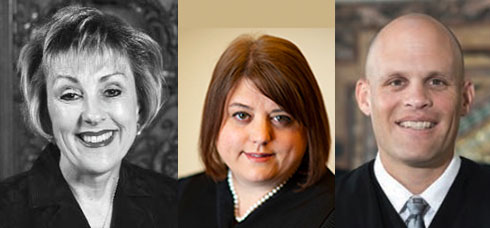
Case Update
Case Status: Loss
Jeffrey Barke et. al v. Eric Banks et al.
- Categories:
- Freedom of Speech
Ninth Circuit Upholds California Gag Law
The panel largely affirmed a lower court ruling that dismissed the challenge based on assurances from California’s Public Employment Relations Board (PERB) that public officials enjoy First Amendment protection for their speech as individuals, such as when campaigning, even though they have no such protection when they speak on behalf of the public entities they serve, such as school boards or city councils.
Although CIR introduced evidence of cases where PERB had classified what looked to be individual speech as speech made on behalf of an entity, none of CIR’s clients had been investigated for anti-union speech. For that reason, the district court concluded that their challenge was premature.
CIR argued that the statute was unconstitutional on its face because its vague wording creates an impermissible chilling effect on speech. The statute imposes liability for any speech that “deters or discourages” union affiliation, including statements that merely call attention to a union’s unpopular policies and positions.
And according to PERB, the question of when an elected official is speaking as an individual is muddy, since it depends on PERB’s evaluation of whether a public official could have been “perceived” by someone to have been speaking on behalf of a public entity.
Although the panel would not entertain a pre-enforcement challenge of the statute, it did take note of PERB’s assurances that, for example, “private speech, including campaign speech,” and “statements made by an individual board member during a meeting,” including legislative or electoral debates, are not covered by the law. PERB’s admissions, now incorporated in a judicial opinion, will make it difficult for PERB to enforce the law in an unconstitutional manner.
Nevertheless, elected officials will continue to be subject to lengthy and intrusive state investigations of all the facts and circumstances of their speech any time a union files a complaint. This will inevitably chill robust criticism by elected officials of union policies, including policies that directly affect the quality of public education.
CIR will continue to look for a case to challenge the vaguely worded statute on its face. Elected officials should not have the threat of an unfair labor practice hanging over their heads whenever they publicly challenge a public employee union, especially given that comments by public officials in support of unions remain free from any such scrutiny.
